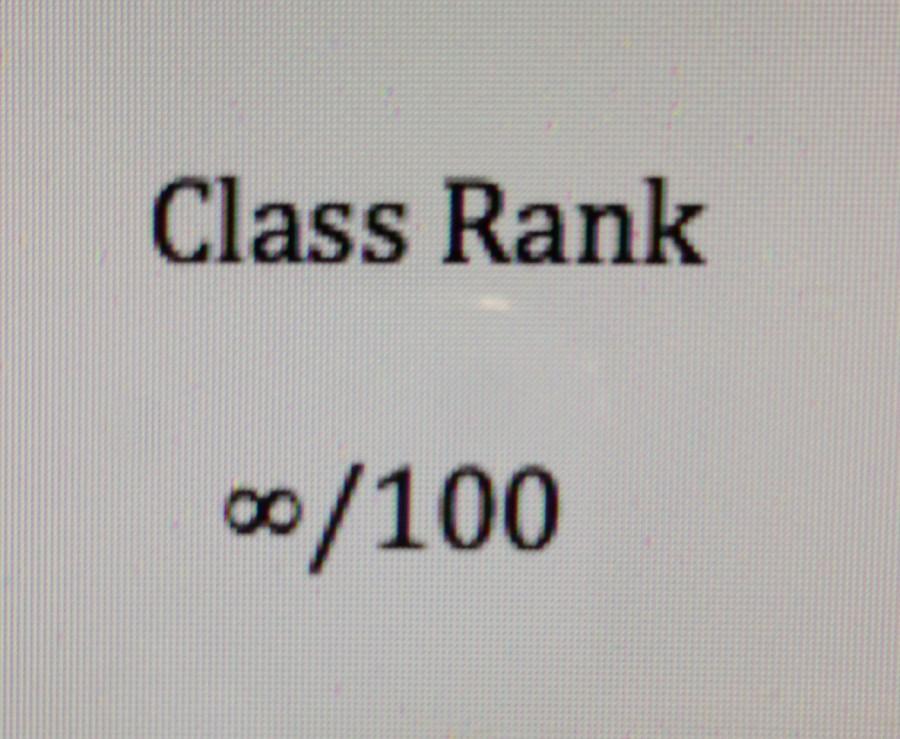DESTRUCTIVE
A class ranking system is destructive because it creates a negative atmosphere through the cynical competition it creates. It either makes you feel superior or inferior, turning the motivation to do well away from yourself, and focusing it on the success of others.
When students’ central purpose of studies is their class rank and that of others, they may get good grades but they are still failing school in a sense. We should want to learn because it is interesting and important, not to simply do better than our classmates. This obsessive external motivation not only creates an animosity between students but for those desperate to raise their rank, it has also has been known to prompt cheating.
Other students feel that the class rank doesn’t tell the whole story, making it an unfair representation of their academic standing. It fails to mention how many hours you’ve studied or what level courses you’re in and it doesn’t account for the intelligence differences between grades; creating an invalid rank. For example, a GPA that spots you at 5 in one grade may be the same GPA for a student ranked 10 in another, it is all RELATIVE.
PRODUCTIVE
A class rank can be a productive tool in the naturally competitive atmosphere at Madison. Some students look at school like a competition, seeing each test as a contest against your peers to reveal who is better at a given subject. For these externally motivated students, a student “high score” chart fosters their academic drive, making the student rank a productive and motivating academic tool.
Another positive factor to the class rank is that it exposes the competitive nature of our world at an early age, giving highschoolers a flavor of what’s to come. In addition, a high class rank can make for a nice accessory on a college application.
Senior Lainie Rowland explained this controversy by saying, “I guess it depends what kind of student you are. Some are motivated by the class rank but others obsess over it and it destroys them.”
